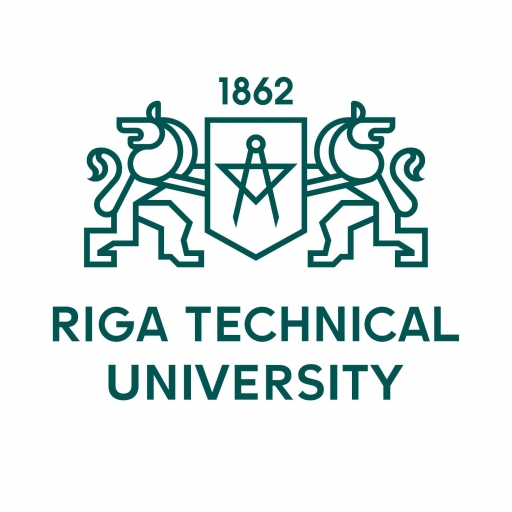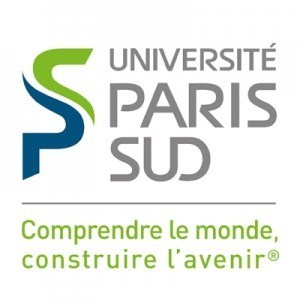Photos of university / #rtu.lv
The Computerised Control of Electrical Technologies programme at Riga Technical University offers students an advanced education in the design, development, and management of modern electrical control systems. This interdisciplinary course combines principles of electrical engineering, automation, and computer science to prepare graduates for careers in diverse sectors such as manufacturing, energy, transportation, and automation industries. Throughout the programme, students acquire in-depth knowledge of automation systems, programmable logical controllers (PLCs), embedded systems, real-time data processing, and digital control technologies. The curriculum includes courses in electrical circuit analysis, digital signal processing, control theory, robotics, and intelligent systems, providing a comprehensive foundation in both theoretical and practical aspects of electrical control systems. Practical training is a key component of the programme, with students engaging in laboratory work, project development, and internships within industry partners. These experiences enable students to develop problem-solving skills, work on real-world projects, and gain valuable insights into current industry practices. The programme also emphasizes innovation, encouraging students to participate in research projects and develop new control solutions that enhance efficiency and sustainability. Graduates of this programme are highly equipped for employment in engineering design firms, industrial automation companies, power utilities, and research institutions. They are prepared to undertake roles such as automation engineers, control systems developers, system integrators, and project managers. The education provided by Riga Technical University ensures that graduates are not only proficient in the latest technological tools and programming languages relevant to electrical control but also capable of adapting to the ongoing technological advancements in the field. The programme fosters critical thinking, creativity, and teamwork, positioning students for a successful career in the rapidly evolving field of electrical control technologies on an international scale.
Detailed Course Facts
Application deadline August 1; Non EU July 1; December 1 Tuition fee- EUR 1400 Year (EEA)
- EUR 2020 Year (Non-EEA)
- English
Course Content
Throughout the study programme, you will be taught how electricity functions and how electronics are applied in industrial equipment. You will develop a basic understanding of electrical principles, which help you be considered as a well-educated professional in the field of electrical engineering. The study programme consists of compulsory, limited choice, free choice subjects, as well as humanities/social subjects and languages. The program provides general subjects, like mathematics, physics, computing, mechanics and chemistry. Other aspects of the programme include the advanced use of computer applications such as MathCAD, MATLAB, SolidWorks Premium, SolidCAM and ANSYS, among others. You Faculty of Power and Electrical Engineering Bachelor´s Programme in Computerized Control of Electrical Technologies also develop techniques in computer aided analysis and approaches in simulation. There different scientific equipment of working place for designer of electric equipment (Tractebel Engineering); complicated relay protection and automation testing device with computer FREJA with software (without computer this device is invalid) (OMICRON); power analyzer, merger, voltage tester (EDDI); programming environment OPC ToolKit for Windows etc., used at the faculty. In the study programme there are around 42% of subjects in electrical engineering and electronics, which aim to produce graduates who are highly literate in the field of studying and who are ready to exploit emerging computer-based technologies. Some of the compulsory and specialized subjects of the curriculum are as follows*:
COMPULSORY SUBJECTS
o Electricity and Magnetism
o Electrical Engineering Theory
o Computer Realisation of
Mathematical Tasks for Electrical
Engineering
o Electronic Equipment
o Electrical Measurement
o Power Electronics
o Electrical Machines
o Fundamentals of Regulation Theory
o Digital Electronics and Computer
Architecture
o Circuit Theory
o Theoretical Basis of Electrical Drives
o Electric Supply
o Programming Languages
o Programming Technology
LIMITED CHOICE
Specialized subjects
o Basic Signal Theory
o Electrotechnological Equipment
o Control and Regulation of Electrical
Drives
o Basics of Production Systems
Automation
o Digital Electronics (basic level)
o Application of Computers in
Automation of Technological
Processes
*For complete curriculum, check the RTU website.
Program requirements for the degree in Computerised Control of Electrical Technologies at Riga Technical University typically include a strong foundation in mathematics, physics, and programming skills. Applicants are generally expected to have completed secondary education with good results in mathematics and physics. Additionally, proficiency in computer science and information technology is advantageous. The program mandates the completion of prerequisite courses in electrical engineering, control systems, and automation during the first year. Prospective students should demonstrate analytical thinking and problem-solving abilities, as coursework involves designing, analyzing, and optimizing control systems for electrical technologies.
Language proficiency requirements may include a certified level of English or Latvian, depending on the instruction language. Some programs also require passing entrance examinations or interviews to assess technical knowledge and motivation for the field. Prior experience with programming languages such as C++ or Python can be beneficial but is not strictly mandatory. Internships or practical training may be required during the course of study to ensure hands-on experience in controlling electrical systems and implementing automation solutions. The program emphasizes interdisciplinary knowledge, combining electrical engineering principles with control theory, computer science, and robotics, therefore students are expected to have good teamwork and communication skills.
Students are advised to review the specific admission criteria published annually by Riga Technical University to ensure compliance with current standards. Admission office consultations are recommended for applicants who need clarification on academic prerequisites or language requirements. There are also opportunities for international students to meet additional language or visa requirements. Overall, successful candidates should show a genuine interest in control systems and automation, be ready to engage in rigorous technical coursework, and demonstrate a commitment to innovation and technological development in electrical engineering domains.
Related Scholarships*
- Academic Excellence Scholarship
"The Academic Excellence Scholarship can provide up to a 50 % reduction in tuition per semester. These scholarships will be renewed if the student maintains superior academic performance during each semester of their 3-year Bachelor programme. The scholarship will be directly applied to the student’s tuition fees."
- Alumni Study Travel Fund
Scholarships for students who are already attending the University of Reading.
- Amsterdam Merit Scholarships
The University of Amsterdam aims to attract the world’s brightest students to its international classrooms. Outstanding students from outside the European Economic Area can apply for an Amsterdam Merit Scholarship.
* The scholarships shown on this page are suggestions first and foremost. They could be offered by other organisations than Riga Technical University.
The Computerised Control of Electrical Technologies program at Riga Technical University is designed to prepare students for advanced roles in the automation and control systems engineering sector. This multidisciplinary program combines theoretical knowledge with practical skills, focusing on the development, implementation, and management of computer-controlled electrical systems. Students gain a comprehensive understanding of electrical engineering principles, automation technologies, and computer science, enabling them to design and optimize complex control systems used in various industries such as manufacturing, energy, transportation, and building management.
Throughout their studies, students are trained to work with modern control hardware and software, including programmable logic controllers (PLCs), industrial computers, and networked control systems. The curriculum emphasizes the integration of electrical, electronic, and computer engineering concepts to develop efficient, reliable, and safe automated solutions. This includes coursework in digital control systems, embedded systems, robotics, sensor technology, and industrial communication protocols.
The program also stresses practical experience through laboratory work, projects, and internships. Students have access to state-of-the-art laboratories equipped with industry-standard control panels and automation equipment. Collaborative projects with industry partners allow students to work on real-world problems, fostering innovation, problem-solving, and teamwork skills. The faculty members are experienced engineers and researchers dedicated to providing students with individual guidance and up-to-date knowledge of emerging trends and technologies.
Graduates of the program are well-prepared for careers in sectors like automation engineering, industrial control, energy management, process automation, and developing control software. They can also pursue further studies or research in related fields such as electrical engineering, computer science, or systems engineering. The program holds international recognition and aims to meet the needs of modern industry for skilled professionals capable of designing and maintaining sophisticated control systems, ultimately contributing to the technological advancement and competitiveness of local and global markets.









